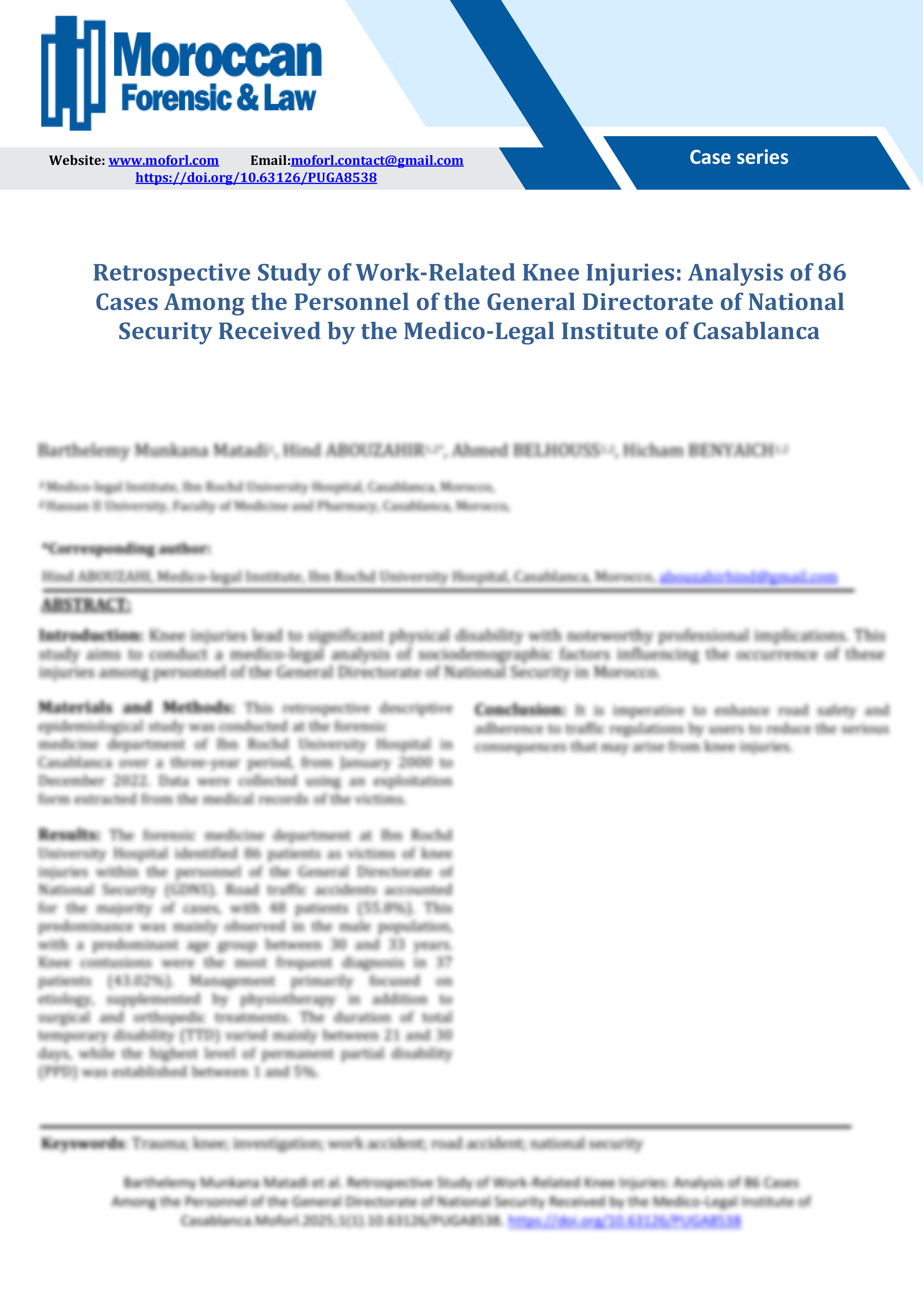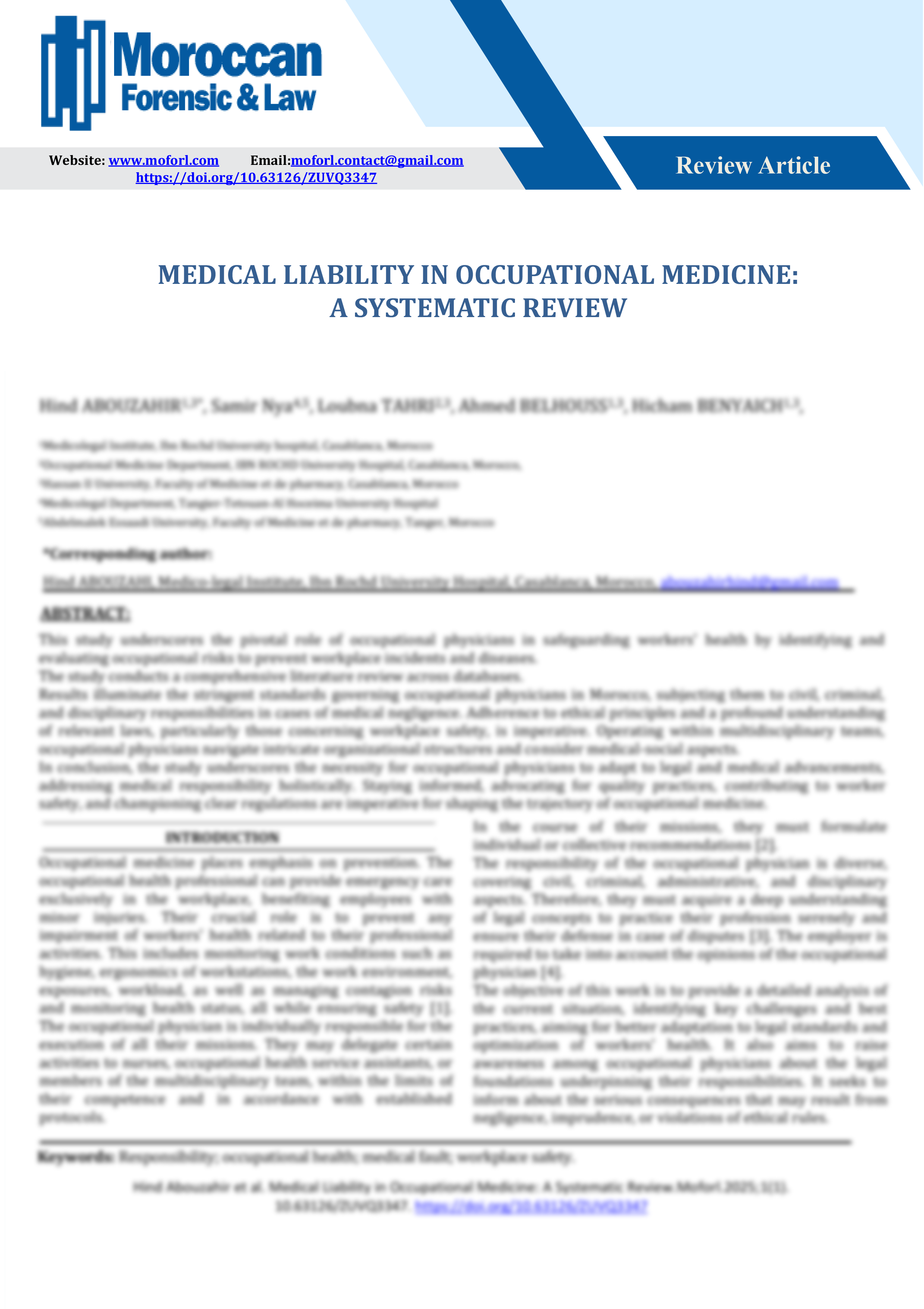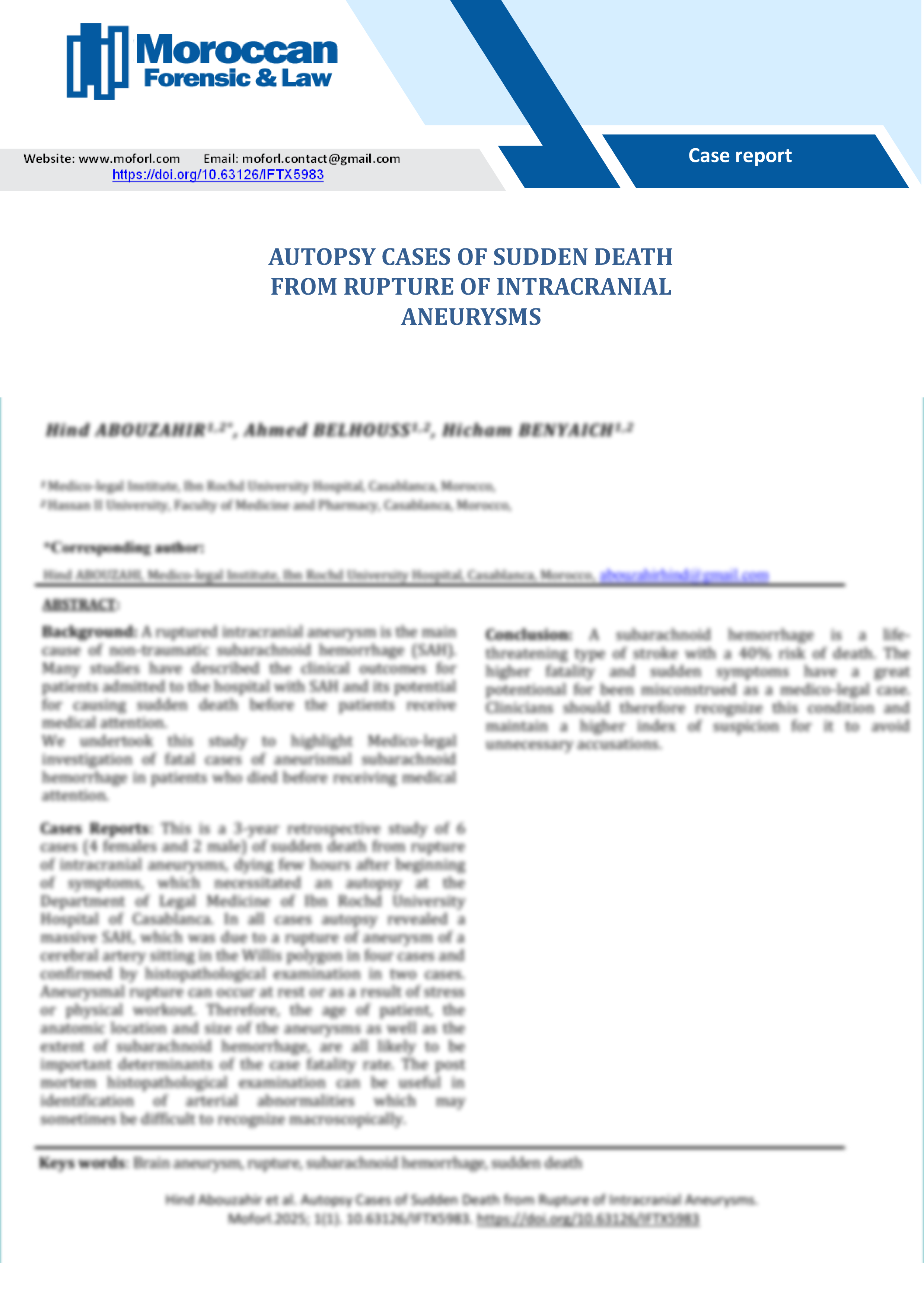Retrospective Study of Work-Related Knee Injuries: Analysis of 86 Cases Among the Personnel DGSN Received By MLIC

Retrospective Study of Work-Related Knee Injuries Analysis of 86 Cases Among the Personnel of the General Directorate of National Security Received by the Medico-Legal Institute of Casablanca
ABSTRACT:
Introduction: Knee injuries lead to significant physical disability with noteworthy professional implications. This study aims to conduct a medico-legal analysis of sociodemographic factors influencing the occurrence of these injuries among personnel of the General Directorate of National Security in Morocco.
Materials and Methods: This retrospective descriptive epidemiological study was conducted at the forensic medicine department of Ibn Rochd University Hospital in Casablanca over a three-year period, from January 2000 to December 2022. Data were collected using an exploitation form extracted from the medical records of the victims.
Results: The forensic medicine department at Ibn Rochd University Hospital identified 86 patients as victims of knee injuries within the personnel of the General Directorate of National Security (GDNS). Road traffic accidents accounted for the majority of cases, with 48 patients (55.8%). This predominance was mainly observed in the male population, with a predominant age group between 30 and 33 years. Knee contusions were the most frequent diagnosis in 37 patients (43.02%). Management primarily focused on etiology, supplemented by physiotherapy in addition to surgical and orthopedic treatments. The duration of total temporary disability (TTD) varied mainly between 21 and 30 days, while the highest level of permanent partial disability (PPD) was established between 1 and 5%.
Conclusion: It is imperative to enhance road safety and adherence to traffic regulations by users to reduce the serious consequences that may arise from knee injuries.
Keywords: Trauma; knee; investigation; work accident; road accident; national security


